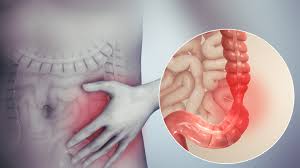A recent study published in Scientific Reports has indicated that even mild cases of COVID-19 may lead to changes in heart rate variability (HRV) for several months post-infection. Researchers from Brazil found that individuals who had recovered from mild COVID-19 showed decreased HRV and increased sympathetic nervous system activity compared to healthy controls.
The cross-sectional study, conducted at Universidade Ceuma and Universidade Federal de São Carlos, examined 130 participants, dividing them into groups based on the time elapsed since their COVID-19 diagnosis. Group 1, assessed within six weeks of infection, and Group 2, assessed between two and six months post-infection, both exhibited lower HRV compared to the control group. This suggests potential autonomic imbalance, with a leaning towards sympathetic dominance (increased stress response) and/or reduced parasympathetic activity (reduced relaxation response).
“Our findings indicate that even mild COVID-19 can have a lasting impact on the autonomic nervous system, affecting heart rate variability,” stated the researchers.
Specifically, Group 1 showed the most significant reduction in parasympathetic tone, while both Groups 1 and 2 displayed higher low-frequency (LF) power, indicating increased sympathetic dominance. Group 3, assessed between seven and twelve months post-infection, showed signs of recovery, with higher RMSSD (root mean square of successive differences) and high-frequency (HF) power, reflecting improved parasympathetic modulation.
The study also identified age and time since infection as significant predictors of HRV recovery. Stress was identified as a significant negative predictor of HRV. Notably, Group 1 had a higher prevalence of unvaccinated individuals and those reporting persistent symptoms like fatigue, ageusia, cough, headache, and anxiety.
The researchers concluded that recovery time and age significantly influence HRV recovery, suggesting a transient effect of COVID-19 on the autonomic nervous system. They emphasized the need for future longitudinal clinical trials to validate these findings.
Disclaimer: This news article is based on a single study and should not be interpreted as definitive medical advice. The findings suggest a potential link between mild COVID-19 and changes in heart rate variability, but further research is necessary to confirm these observations and understand the long-term implications. Individuals with concerns about their heart health should consult with a healthcare professional.












